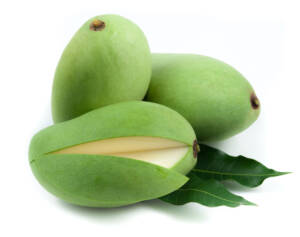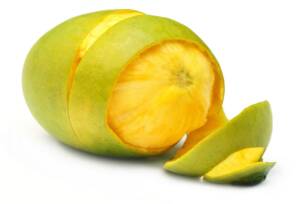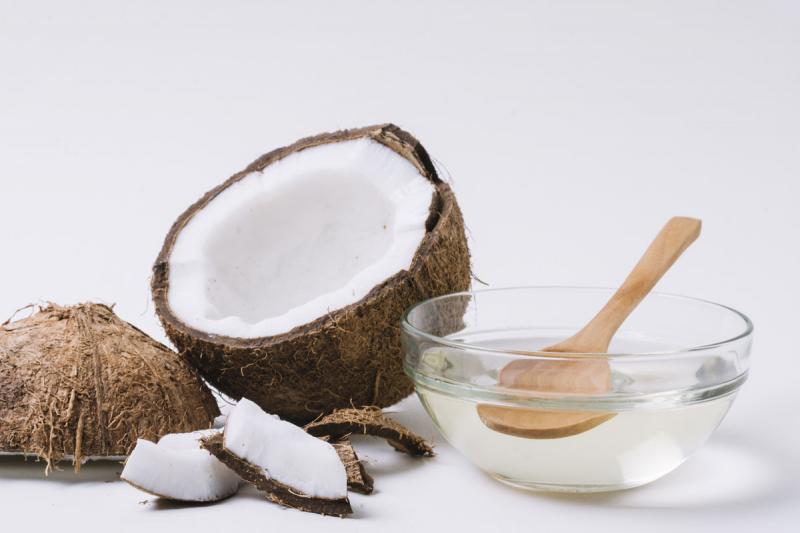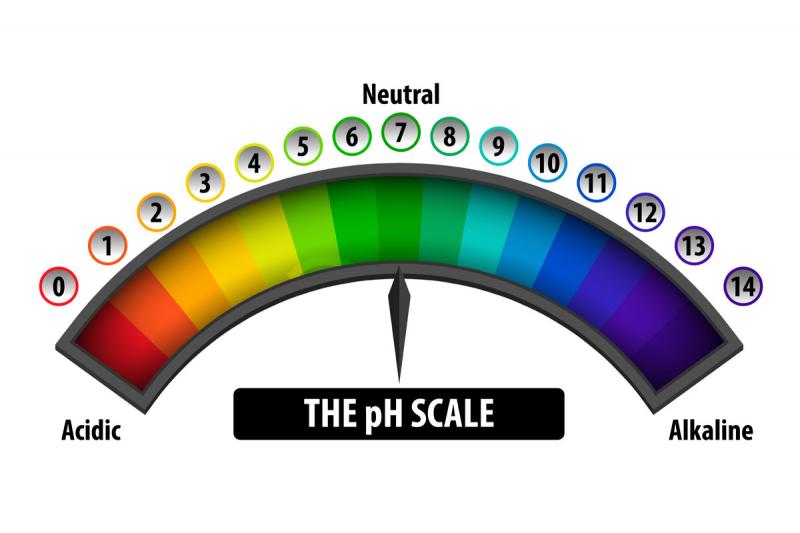Mango is one of the choicest fruits in the world. Due to its characteristic succulence, exotic flavor, sweet taste, fruity fragrance and numerous health benefits, it is known as the “King of Fruits”. There are many varieties of mango that vary in color, shape, flavor and seed size. Although mango skin can be green, red, yellow, or orange, its inner flesh is mostly golden yellow. Mango flesh is consumed in both unripe as well as ripe forms.
Nutritional Composition
Mango is an antioxidant-rich health booster. It is relatively high in calories (60 Kcal/100 g fresh pulp) and rich in vitamin A, B-6, C, calcium, iron, magnesium, phosphorus, potassium, sodium, zinc, copper, manganese, selenium and fiber. It is also a rich source of bioactive compounds like phenolic acid, carotenoids and polyphenols that give it health promoting and disease preventing attributes.
Ripe vs unripe mango
Raw mango is generally green in color, changing to yellow or orange when fully ripe. Mango contains different types of carbohydrates based on the stage of maturity. Unripe mango is a source of starch and pectin. During the ripening process starch is converted to sugars and thus ripe mango is rich in fructose, glucose and sucrose. Unripe mango tastes sour because of the presence of different acids whereas the sweet taste of the ripened fruit is due to the blending of sugar and malic acid.
Health benefits of ripe mango
Eating ripe mangoes can help protect and strengthen the body in several ways.
- Prevents heat stroke – Ripe mango fruit is considered to be invigorating and freshening. The juice is a restorative tonic and used in heat stroke.
- Prebiotic – Mango polyphenols and fiber act as prebiotic to feed good bacteria in the intestine. The prebiotic fiber also prevents disorders like irritable bowel syndrome and ulcers.
- Boosts immunity – It is an excellent immunity booster due to the presence Vitamin C and antioxidants.
- Controls blood pressure – Mangoes are a good source of magnesium and potassium, both of which help in lowering blood pressure.
- Relieves anemia – Being rich in iron as well as vitamin C, that helps in absorption of iron, mangoes can good for people with anemia.
- Eye health – Mango is rich in an anti-oxidant zeaxanthin that plays a protective role in eye health and prevents macular degeneration in elderly.
- Skin & hair health – Vitamin C rich mangoes support the development and maintenance of collagen that provides structure to skin and hair. Presence of nutrients like vitamin A, vitamin C, iron, zinc, etc., make mango a good option for nourished hair and healthy skin.
- Prevents cancer – The antioxidants in mangoes fight free radicals, which can damage cells and potentially cause cancer. Being rich in β-carotene and other phytochemicals, mangoes can prevent leukemia and progression of prostate, breast, and colon cancers.
Health benefits of raw mango

- Prevents Dehydration -Beverage made from raw mango (Aam Panna) reduces the effect of sunstroke and prevents dehydration by correcting sodium and other mineral imbalances in the body.
- Gastrointestinal Health– Raw mango can help with various stomach issues and disorders like acidity, indigestion, constipation, and morning sickness. It also aids in digestion and reduces flatulence.
- Dental Health – Raw mango packed with vitamin C is beneficial in curing scurvy. It also holds a key role in enhancing dental hygiene by averting bad breath and combat tooth decay.
Mango Peel

Besides the fruit pulp, the peel of the fruit also has health-promoting and disease-preventing effects due to presence of a number of bioactive compounds.
Mango peels are a rich source of dietary fiber, vitamin E, C and minerals like calcium, potassium, magnesium, iron, manganese, zinc, and copper and antioxidants.
Eating mango peels help to
- Lose weight
- Boost immunity
- Lower cholesterol
- Reduce the risk of cataract
- Prevent cancer
On their own, mango peels are tough and bitter. You can extract nutrients from the mango peel by combining it with sugar and lemon and keeping it overnight. In the morning, drain and squeeze the pulp and bottle the syrup. Mango peels can also be dehydrated and powdered and added to salad or other dishes.



